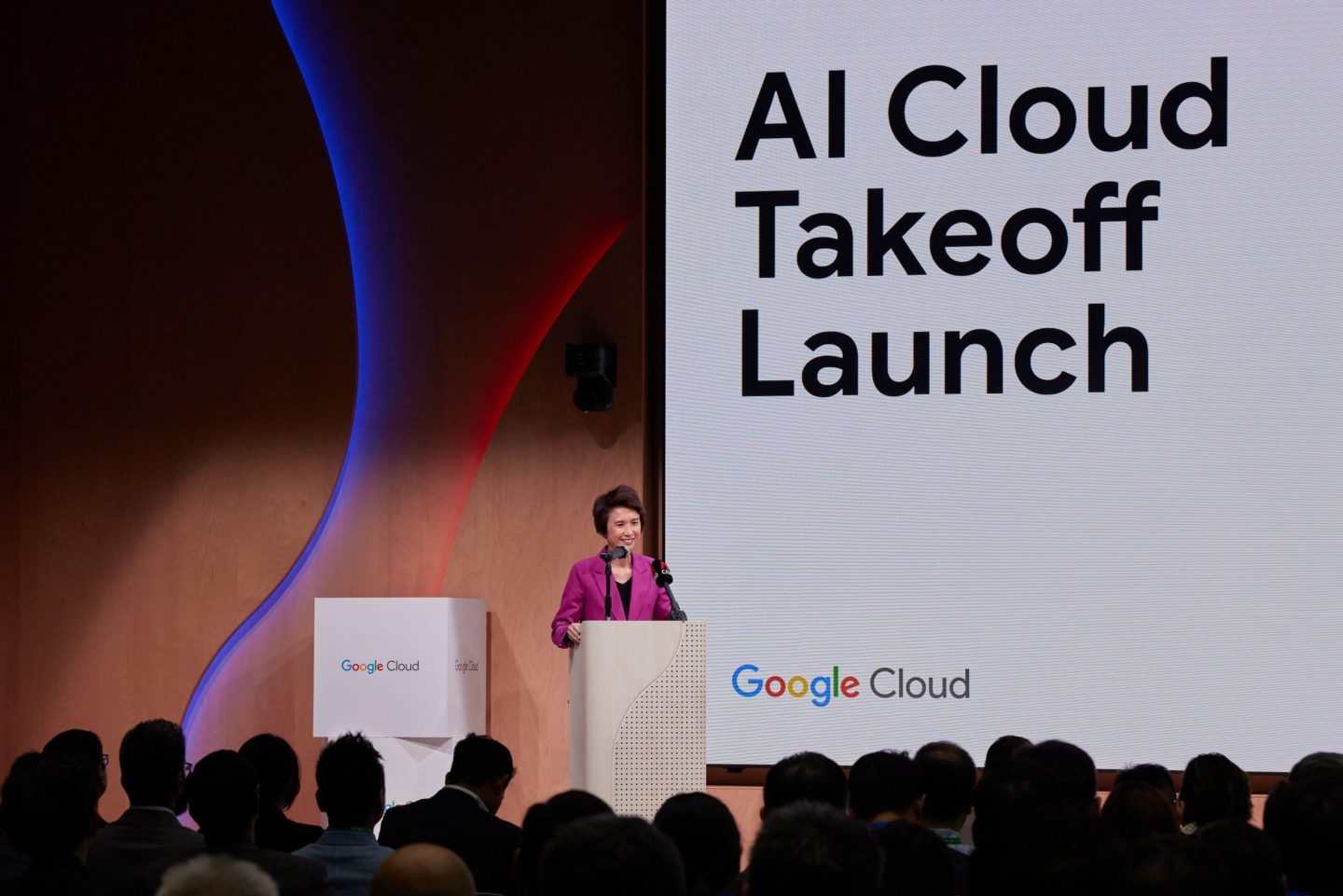- Singapore’s AI programme helps 300 firms build in-house teams.
- Backed by Google Cloud, moves companies from AI trials to production.
Singapore is backing a national plan to help 300 local companies adopt AI in their operations. The programme, called AI Cloud Takeoff (AI CTO), is led by Google Cloud and Digital Industry Singapore (DISG). It builds on a smaller pilot with 30 companies that wrapped up in late 2024.
The goal of the programme is to accelerate AI and cloud adoption in Singapore. Under the initiative, AI Centers of Excellence (CoEs) will be set up in 300 digitally mature Singapore-based companies in the next year. The teams will guide how AI is used in departments, train staff, and ensure that tools are integrated safely and responsibly. Companies involved will work with Google Cloud-certified tech partners and can receive up to SG$500,000 in support as they reach key project milestones.
The AI CTO effort is part of a broader Enterprise Compute Initiative announced in Singapore’s 2025 Budget.
Getting businesses ready for enterprise AI
AI CTO starts with a two-week bootcamp run by Google Cloud. Companies will identify AI uses tied to their business goals and set up internal teams to manage AI projects. They’ll receive help designing and building a working AI solution inside six months.
Support includes Google Cloud credits for using services like BigQuery and Vertex AI, and employee training through Google Cloud Skills Boost. Technical consultants will help with development and integration so the AI tools work with a company’s current systems and follow data privacy rules.
Google Cloud has teamed with Accenture, AsiaPac, CloudMile, Deloitte, Kyndryl, NTT Data, and Searce to help companies get started.
Several companies from the original pilot shared what they’ve built so far.
Embed builds an in-venue AI experience tool
Embed, which provides cashless systems for family entertainment centres like Timezone and Dave & Buster’s, launched a solution called Sidequest AI as a result of their participation in the AI CTO pilot. The solution, integrated into Embed’s kiosks, uses BigQuery to process gameplay and payment data and Gemini on Vertex AI to recommend tasks or rewards for players. It’s already been adopted in North and South America.
Andy Welsh, CTO at Embed, said the programme helped them prioritise projects and understand how to apply AI to their product line.
Searce, the partner that worked with Embed, said the key was balancing cloud and local processing to keep things efficient. The solution is now running in live environments and ready to scale.
Seaco uses AI to streamline container checks
Seaco, a player in the shipping container leasing space, is using AI to speed up how it inspects and processes container returns. The company built a multilingual AI agent that analyses photos and voice notes taken by depot staff.
The tool detects container damage, pulls out key details from voice messages, and sends a summary to Seaco’s cloud-based system. The company estimates the system could automate around 220,000 inspections a year.
Damian Leach, CIO at Seaco, said they created an internal hackathon to collect AI ideas from staff, and the solution emerged as one of the most promising.
CloudMile, which worked on the tool, focused on making it easy for staff to use in different languages and in different locations. It was built to work smoothly with Seaco’s existing SAP setup.
YCH Group develops cargo screening AI for Vietnam SuperPort
YCH Group is working with Kyndryl to build two AI tools for Vietnam SuperPort, a new 83-hectare logistics hub that connects air, sea, road, and rail freight.
One AI agent pulls key information from scanned or handwritten cargo documents, and another analyses X-ray images to flag prohibited items. Both tools are integrated with YCH’s operations systems.
Dr. Yap Kwong Weng, CEO of Vietnam SuperPort, said the new tools are expected to raise worker productivity and cut cargo handling errors.
Kyndryl said the models were trained using YCH’s past cargo documentation and image samples, and the company has plans to scale its solutions in Southeast Asia.
What comes next
Applications are now open for the full AI CTO rollout. The Singapore government and Google Cloud hope to bring more companies on board, using the same structure tested in the pilot.
The broader goal is to help Singapore-based businesses move beyond experimentation and start building useful AI tools that solve real problems. The emphasis is on responsible, secure use – and making sure that companies have the skills and structure to support AI long term.







